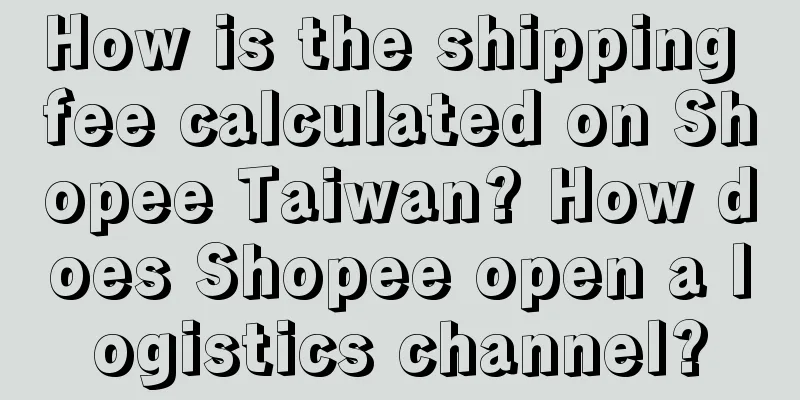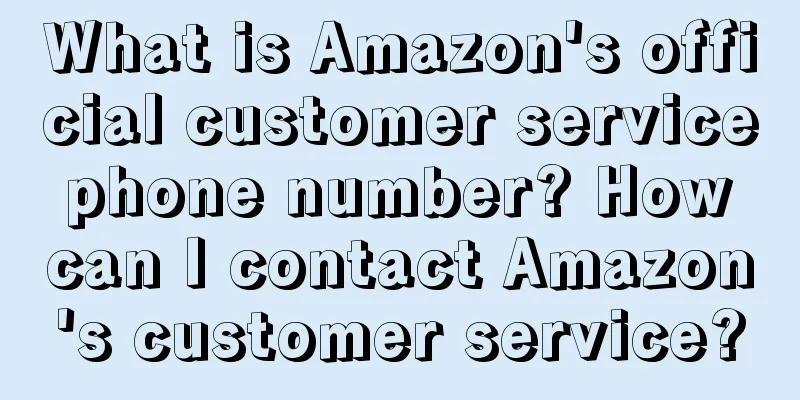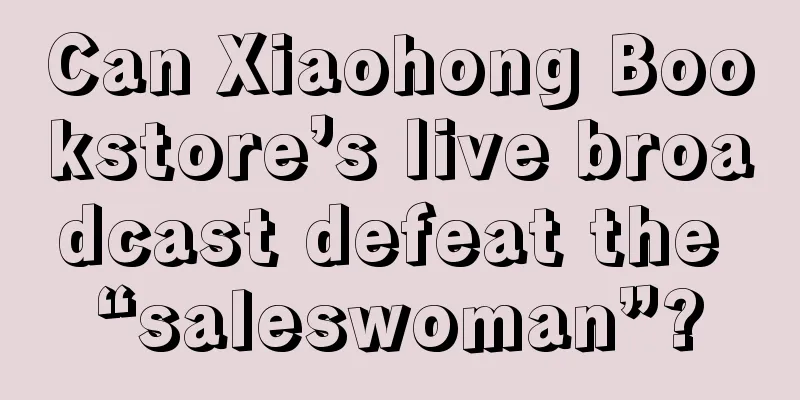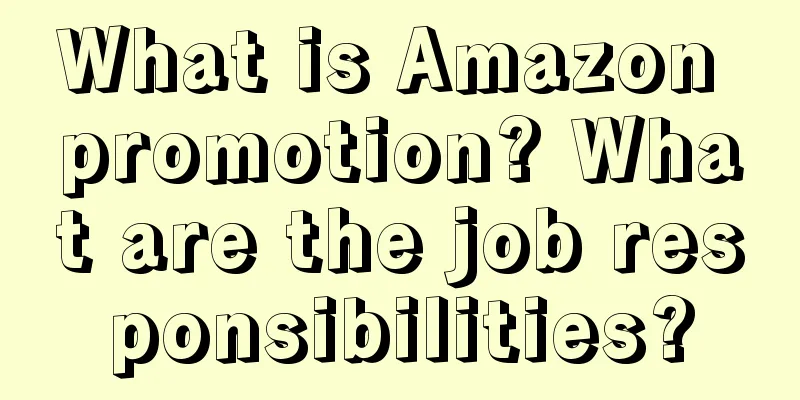Can 1688’s anti-involution push down the “three mountains” weighing on merchants’ heads?

The merchants are really unable to continue. For example, He Yudi, a second-generation factory worker born in the 2000s, runs a fishing gear company in Dongyang, Zhejiang. He mainly does OEM for brands. In addition to selling his products domestically, his products are also sold to more than a dozen countries around the world. After taking over his father's business, he discovered during the operation of his e-commerce store that a fishing line was being sold on a certain e-commerce platform for 5.9 yuan with free shipping. In his opinion, it is impossible to make a profit at this price. He was very confused, how did these merchants make money? 1. Three major challenges facing businesses"Later I heard that many people were putting small game cards in packages for game companies to earn advertising fees to make up for their losses." This is an example of merchants being dragged into a price war. In addition, merchants also want to compete for services. He Yudi revealed that after various e-commerce platforms successively launched the "refund only" service, the return rate of the entire fishing line industry increased to 20%, causing costs to soar. Moreover, he also found that the refund alone "created" a lot of wool party, or a group. These wool party would organize to flock to a certain store to buy goods, creating a false consumption, causing the platform's traffic to tilt towards this part of the customer group. But for businesses that operate normally, the direct consequence is that no matter how much money they spend on promotion, they cannot obtain accurate consumer groups. In other words, this is a "distorted" consumer group. In fact, what He Yudi revealed is an industry reality: in the past two years, the e-commerce industry has been in a nearly crazy low-price competition mode. The low-price methods such as price comparison across the entire network, automatic price matching, hundreds of billions of subsidies, and refund-only have not only "pampered" consumers, but also spawned a number of professional wool parties who resell second-hand goods, bringing great operating pressure to platforms and merchants. Because behind the extremely low prices, platforms and merchants have to face low gross profits or even losses, and it is becoming increasingly difficult to do business in the involutionary format. Merchants are even more overwhelmed by the three major problems of "difficult operation, high costs, and low profits", and doubts about "only refunds", "low-price involution", and "changing policies" are growing louder and louder. Ma Shuzhong, dean of the China Digital Trade Research Institute of Zhejiang University, said that the domestic demand for China's digital transformation is that manufacturing companies must maintain a net profit of more than 10%. Otherwise, China's manufacturing will gradually "suffocate" in the vortex of low prices. When these feedbacks are transmitted upward, the platform needs to take a stance and consider the interests of merchants more, helping them reduce the difficulty of doing business and avoid merchant loss. This is an unavoidable reality. As the e-commerce industry enters the era of inventory, abundant supply is the key variable that affects consumer purchases. High-quality merchants have become the "moat" of e-commerce platforms, especially the source manufacturers of industrial belts, which have become the object of fierce competition among domestic and cross-border e-commerce platforms. 2. 1688 needs to fight against involutionIn this process, 1688, as a direct sales platform of factory goods under Alibaba, has a strong B2B attribute. In order to expand the market size and cater to consumers' cost-effective needs, it has vigorously introduced C-end traffic. For example, in March this year, 1688 launched a new round of buyer experience upgrades, launching 0 yuan orders, free shipping for one piece, two-three-day delivery, and free return shipping services. These changes have left many manufacturers who originally only did B-side business at a loss. He Yudi complained that the platform had too many policies and they changed too quickly, making it difficult to adapt in time. "I used to be in the factory business and I took B orders, but you asked me to only refund and ship one piece at a time and it took 24 hours for the goods to arrive. This caused a lot of trouble for merchants." Dong Fanming, general manager of Shanghai Xinmai Food Industry Co., Ltd., is also a "second-generation factory owner". The family factory not only produces mooncakes for brands such as LV, Gucci, and Dior, but also produces butterfly cakes with its own patented appearance. He admitted, "The most direct pressure from free shipping is the increase in product costs." When the logistics cost is higher than the product price, Dong Fanming has to adjust the price of mooncakes, which also directly affects the final sales volume. He also said that last year, through the diversion of traffic on and off the site, a large number of C-end individual customers flocked to his 1688 store, "There are thousands of packages that have not been shipped every day on our dashboard." At the same time, due to the internal competition in the industry, he spent 20% more on advertising this year than last year, but only received 20% of the impressions of last year. The platform's response is somewhat delayed, but 1688 has captured the dissatisfaction of merchants: the business on 1688 has become more and more complicated, and it is not simple enough to make a lot of money by operating it carefully. Many merchants also reported that the platform's traffic is not accurate enough, and the charging rules are difficult to understand; the operating rules are also very changeable, and many factories cannot operate 1688 stores without finding an agent to operate. In this regard, relevant personnel from 1688 also admitted: "Class C buyers, Class B buyers and cross-border buyers were mixed together, and the platform also made a mistake, which was to require merchants to draw a (baseline) line to serve all buyers. Moreover, services such as 'refund only' and 'delivery time limit' have caused great trouble to merchants." In order to retain and attract more B-side merchants, 1688 has loudly called out the slogan of "anti-involution" and introduced a series of "anti-involution" measures, including launching a "efficiency improvement and revenue increase" plan for source manufacturers in the industrial belt and releasing a free "AI business assistant". This is to correct the direction of business development, help merchants overthrow the three mountains, and make it easier to do business on 1688. The person in charge of 1688 merchants said that in terms of efficiency improvement, the platform has comprehensively simplified the business model of merchants, providing two options: self-operation and supply model. For merchants who choose self-operation, 1688 will provide them with AI business assistants for free. Merchants who want to ship goods quickly can choose the supply model, and the platform will provide hosting services. In simple terms, it is "AI for self-operation and hosting for supply model." In terms of increasing revenue, 1688 implements "double guarantee" for the business performance of new merchants, that is, guaranteeing customer acquisition and order guarantee, and ensuring that new merchants obtain at least 50 Class B orders or buyers per month in the first three months. The two types of member merchants, powerful merchants and super factories, can enjoy a green channel directly to the core traffic scene, and no longer set a transaction amount threshold. In addition, 1688 also plans to launch a traffic subsidy of 10 billion yuan. The exposure of promoted products will increase by more than 40% compared with before, and the average click cost will be reduced by 38%. For every 1,000 clicks, the promotion cost will be saved by 38%. In addition, to help merchants adapt to high-frequency small-amount purchases, small-order quick response and flexible production needs and improve business convenience, 1688 will also provide merchants with free "AI business assistants", and all subsequent merchant-side AI products will be free. At present, the annual fee for similar merchant AI products on the market is generally more than 10,000 yuan. According to 1688, this AI business assistant is built on 1688's 24 years of knowledge accumulation in the B-type e-commerce field. It has established a digital employee team with professional operation experience. The main members of the team include AI store managers, AI material operations, AI marketing promotion and AI customer management. In the early grayscale test, the AI business assistant gave priority to merchants with weak e-commerce operation and operation capabilities. During the test period, the business difficulty of merchants using this product was equivalent to 60% of the original, and the business opportunities increased by an average of 50%. After using the AI business assistant, the work that previously required a professional operator to complete can now be completed at a labor cost of 0.2. 3. After the gun goes off, make up for the missed lessons"Make it easy to do business anywhere" is Alibaba's mission, and it has also become the main focus of 1688. Some media commented that 1688 is the first e-commerce platform in the industry to put the slogan of "anti-involution" on the table, and it is clear. In Tang Chen's opinion, the fundamental reason is that 1688 realizes that its core competitiveness is still supply, and 1688 is still a pure To B platform. As its relevant person in charge has repeatedly emphasized, despite the influx of young people, injecting more C-end traffic into the platform, more than 90% of the transaction volume of the entire platform still occurs on the B-end. 1688 will not transform into an e-commerce platform that is both 2B and 2C. Its ambition is to grow into a digital supply chain platform. It is a fact that in the process of e-commerce transactions, the boundaries between B-end and C-end users are becoming increasingly blurred. For example, some users purchase a single item for proofing or testing, or a boss may place an order for leisure and then turn it into a formal purchase. A more typical scenario is that an administrative buyer of a company comes to purchase on business during the day and becomes a personal consumer at night. 1688 revealed that hundreds of thousands of C-end users on the platform are converted to B-end users every month, and the number of conversions per year reaches millions. From this perspective, 1688 has fired the loudest shot against the e-commerce industry's "involution", but the measures it has taken are also being promoted by other e-commerce platforms, and the subsequent effects remain to be seen. In addition, 1688 is facing internal and external challenges. At present, 1688 has the largest number of source factories in China. Data shows that there are more than 6 million factories in the country, of which 2 million are large-scale factories. According to this ratio, 1688 accounts for one-tenth of the total number of factories in China and one-third of the total number of large-scale factories in China. As of mid-December 2023, the number of merchants on 1688 has exceeded 1 million. Among them, 600,000 are source factories. However, this advantageous supply base is also constantly under the impact of domestic and foreign e-commerce giants such as JD.com, Pinduoduo, Douyin, and even Amazon. According to public data, in February this year, Douyin e-commerce released an industry belt report, saying that the platform has covered 684 characteristic industry belts across the country, the number of industry belt merchants has increased by more than 194%, and the number of live broadcasts with goods has exceeded 1.09 million; in April this year, JD.com laid out its first national electronic products cooperation industry belt in Huaqiangbei, helping merchants to achieve transformation in the form of "e-commerce + live broadcast"; Amazon announced in June that it would go deep into dozens of industry belts in Guangdong, Zhejiang, Fujian, Jiangsu and other places, and incorporate more industry belt merchants into the global e-commerce network. In addition to the pressure of external competitors grabbing a piece of the pie, 1688 itself needs to strengthen its "make-up lessons". The most critical point is that 1688 anchors the B track, consumer track and cross-border track, and deeply cultivates the Chinese manufacturing industry belt. This brings an objective result, that is, although the B-end traffic is still growing steadily, the proportion of C-end traffic is also increasing, and the growth rate is faster. 1688 needs to have keen insight, observe the propagation effect of the implicit B-end reputation brought by C-end users, and adjust relevant operation strategies in time. A typical example is that in the past year, 1688 has topped the Apple App Store free list many times. Its biggest boost comes from young people on Xiaohongshu, who have their own consumption propositions and like to share products with a sense of design, good looks, social attributes and emotional value on communities such as Xiaohongshu, and those who have been inspired by them have returned. But in the long run, 1688's anti-involution campaign is a positive signal for the entire e-commerce industry. It will push the industry together to find the optimal solution to escape from inefficient repetition. This is also the foundation for 1688 to embark on the path of e-commerce differentiation. Reference: AI Blue Media, "Why 1688 is clearly against involution" |
<<: 180°, a big reversal of video accounts
Recommend
Where can I view Amazon's deduction details? How can I cancel Amazon's automatic deductions?
When we open a store on Amazon, if we want to unde...
FENDI is selling like hot cakes at 19 yuan a cup. What is Heytea thinking?
With the launch of the joint beverage of HEYTEA an...
How to film a real "business war"
Creators of business war dramas and professional d...
Is it true that cross-border e-commerce can lead to huge losses? Why do you lose money?
Starting a business is not always smooth sailing. ...
Does Wish require a deposit to open a store? How can I get a refund?
Wish is a very popular platform in the US market. ...
Do Shopee cross-border stores require deposits? Detailed answer
We all know that you don’t need to pay a deposit t...
How does Shopee Taiwan set prices? How can I set a suitable price?
Shopee Taiwan is a site that domestic merchants of...
How does Amazon close pre-sales? How to do it?
After many merchants joined the Amazon platform, t...
6 ways to monetize your book list number
Starting from the book list number, this article a...
How are wish orders shipped? What are the shipping methods?
Everyone should have heard of the Wish platform. S...
Just ask on WeChat, and you will find that we can’t handle the free traffic!
This article mainly talks about the WeChat Ask fun...
What is the Amazon Returns Provider Program and why should I use it?
The return issue of Amazon US seller-fulfilled (MF...
How to reduce the weight of short video editing and secondary creation?
Secondary creation can give new life to the origin...
When Haidilao starts to "cheapen" service, can hotpot still be good?
One of the secrets to the success of all catering ...
Can Amazon change the price during its 7-day flash sale? How long does it take to register a flash sale for a new product on Amazon?
As one of the world's largest online shopping ...









